
In the 1980s, a significant psychiatric reform was introduced in Spain. Therefore, people with severe mental conditions leaved psychiatric institutions and returned to their homes. As Mental Health Community Care was barely developed, families became responsible for the greater part of their care. In this context, family members came together and created associations in order to improve the quality of life of people and relatives with severe mental health issues. In a later stage, these associations joined forces and established a Federation (Federació Salut Mental Catalunya/Catalonia Mental Health Federation), one of CoAct partners. They identified -in a participatory way- a common social concern of the individuals with an experience of mental health disorders and their families: the lack of evidence-based acceptance of tools, models, and protocols that put the life experience and self-perception of people with mental health disorders and their peers at the center.
Why Citizen Social Science for Mental Health Care in Barcelona?
During the last two decades, the so-called Recovery Model started to reconsider mental disorders emphasizing resilience, life satisfaction and vital project construction. The Recovery Model puts the lived experiences of individuals with mental health issues at the forefront. Mechanisms contributing to individual well-being, such as formal and informal supportive social networks and the use of self-management tools, are also central to this approach.
The World Health Organisation points to the crucial relevance of participation of persons with mental health issues and their families in the reorganization, provision, evaluation and monitoring of services so that care and treatment better respond to their needs.
How will it happen?
As CoAct, we will co-design new digital interfaces, such as a collective digital conversation with adults with an experience of mental disorders and their families living in Barcelona city and its metropolitan area. The final approach will be discussed and co-created with the citizen groups acting as coresearchers, bearing in mind a variety of methods in order to avoid potential forms of exclusion amongst the participants.
The research will be grounded in the spirit of sharing individual experiences in the form of micro-stories. Such an approach enables the collection of richer data and can therefore better respond to the need of self management within the field of mental health.
What happened Since January 2020?
Local context mapping of the Knowledge Coalition
February – April, 2020. R&I Action #1 partners met regularly to develop a map of local, regional, national and international members…
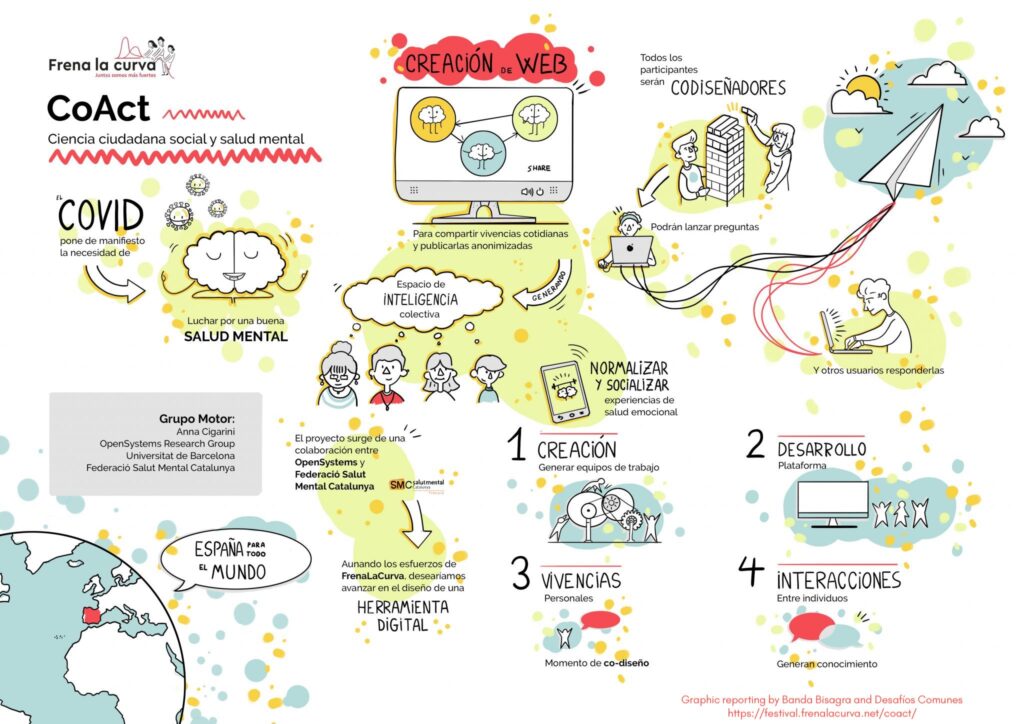
CoAct FrenaLaCurva digital hackathon
26 April – 2 May, 2020. Online co-creation process of a citizen social science prototype platform. The activity was part of…
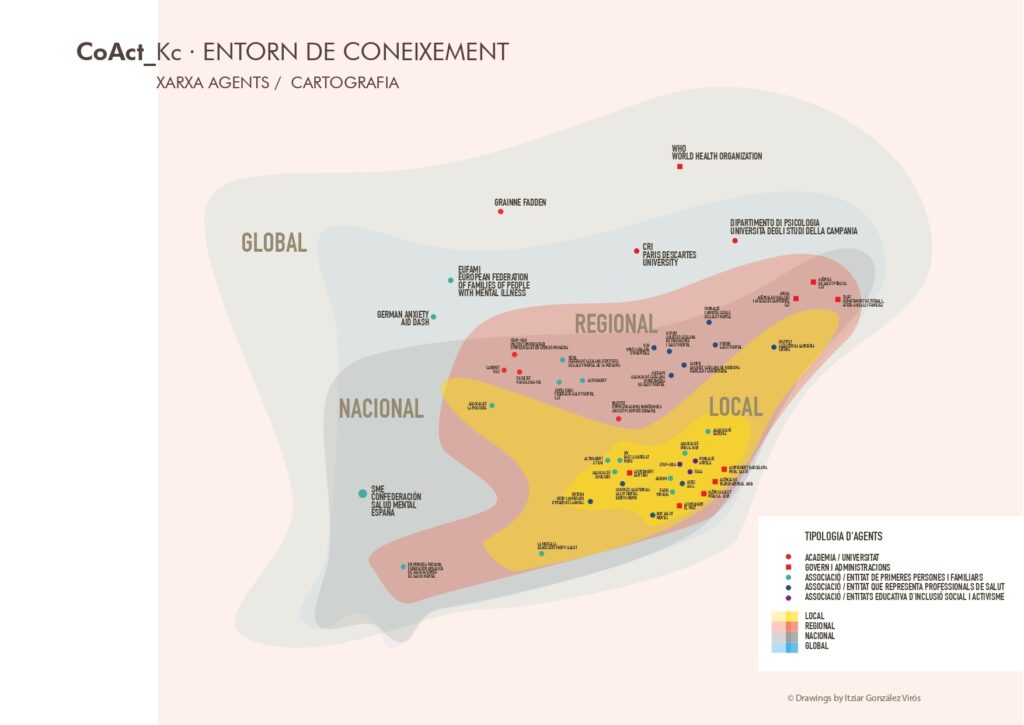
Knowledge Coalition members formal invitation
The Knowledge Coalition seeks to involve the broad community of people and institutions related to mental health. After informally contacting the…

Knowledge Coalition kick-off meeting
Presentation of “CoAct for Mental Health” through online video conference and small groups discussion to clarify doubts. 43 representatives of public…
Knowledge Coalition second meeting
After giving their Informed Consent to participate in the research, the Knowledge Coalition members collaboratively worked on: the definition of social…
Knowledge Coalition third meeting
17 & 22 September, 2020. During this third online session, the collaborative work that was started in July was revised and…
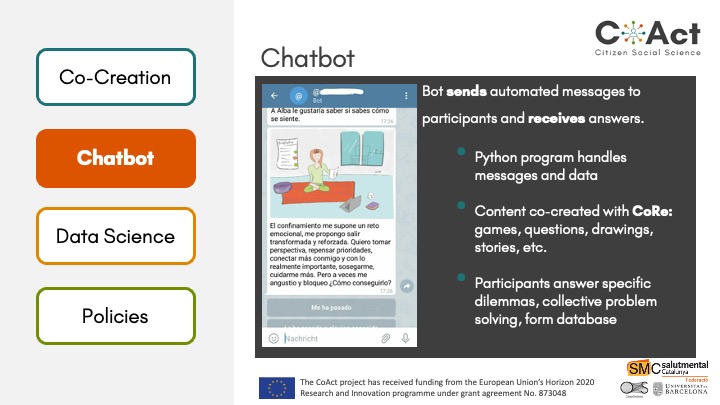
Chatbot presentation at CS SDG conference
A demo version of the chatbot was presented at the international conference “Knowledge for Change: A decade of Citizen Science (2020-2030)…
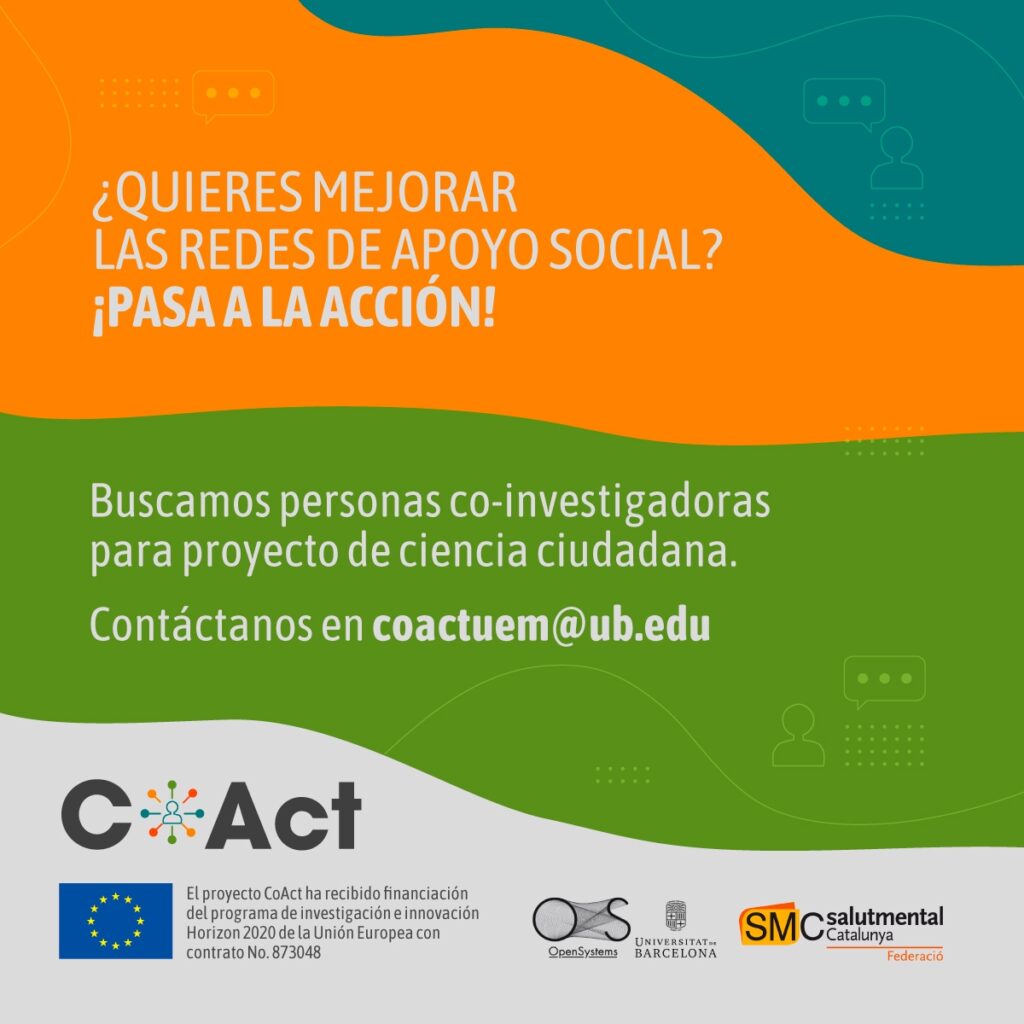
Open call to recruit Co-Researchers
Several communication actions were performed by UB, FSMC and the Knowledge Coalition Members in order to invite the potential Co-Researchers to…
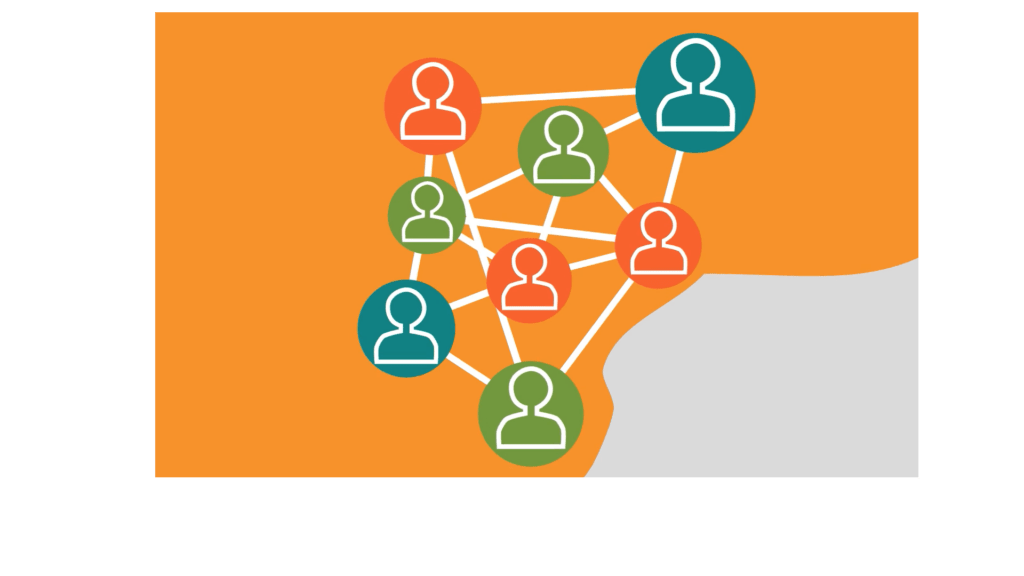
Co-Researchers: First presentation session
During this first online meeting with the Co-Researchers, the concept of citizen social science, the research framework around social support networks…
Co-Researchers: Second presentation session
During this second online presentation, a demo of the digital conversation tool (chatbot) was shared. The results of the interactive exercise…
First co-creation session with working groups 1 and 2
Two of the 4 working groups met online for the first co-creation session (in the morning and in the afternoon). We…
First co-creation session with working groups 3 and 4
The remaining two working groups met online for the first co-creation session (in the morning and in the afternoon). We first…
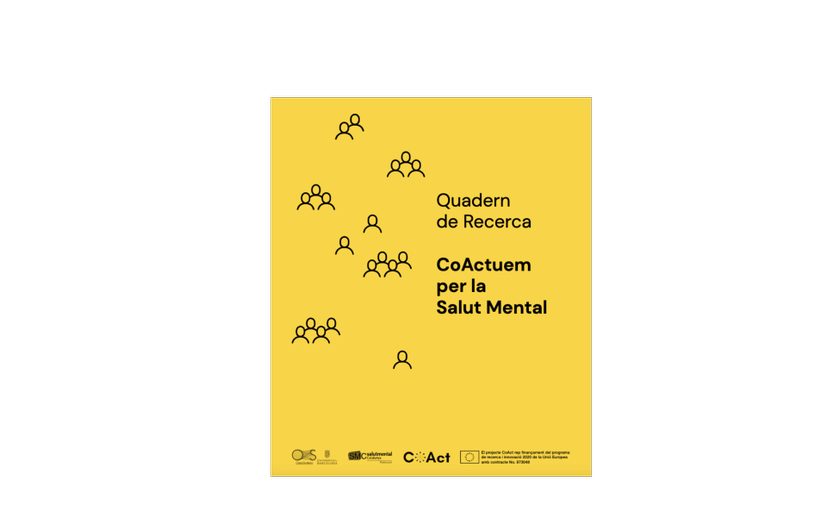
Printed research diary sent to Co-Researchers
A hard-copy research diary was designed in order to help the Co-Researchers during and in-between the research co-creation session. The diary…

Intensive co-creation work with Co-Researchers
13/01-24/02 – A total of 12 co-creation sessions (3 sessions with each group of Co-Researchers) were performed during this period. The…
Co-Researchers plenary session
The chatbot microstories writing process was concluded with a plenary session. In this session, a representant of each group presented the…
Chatbot co-creation and testing with Co-Researchers
From 17-03 to 07-04 – During a total of 3 sessions, the Co-Researchers could enter a prototype version of the chatbot….
Co-evaluation session with ZSI and Co-Researchers
21-06 – During an online evaluation session, a ZSI co-researcher conducted an evaluation session with representative of Co-Researchers, UB and FSMC….
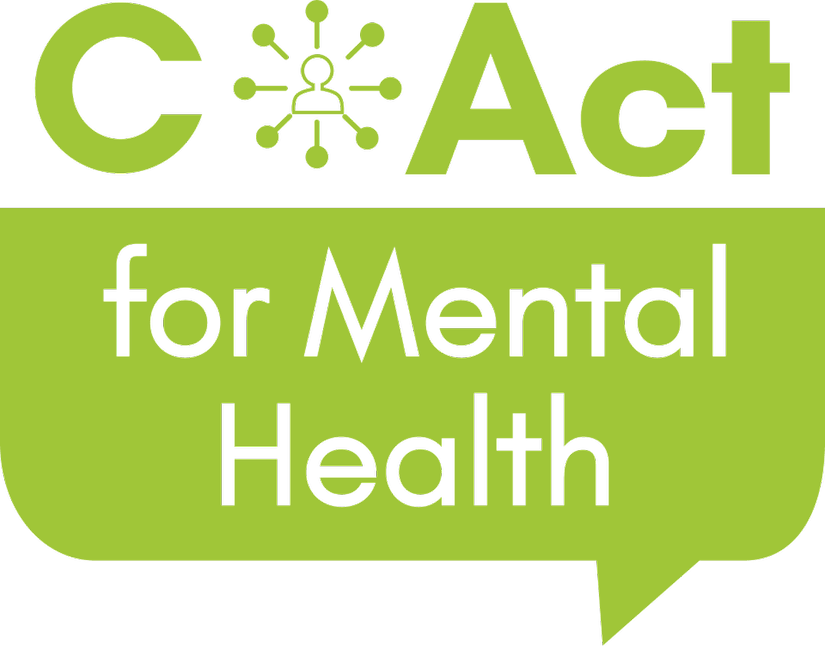
The Co-Researchers present the chatbot to the Knowledge Coalition
Representatives of UB, the FSMC and Co-Researchers presented the whole co-creation process to the Knowledge Coalition. They also allowed them to…
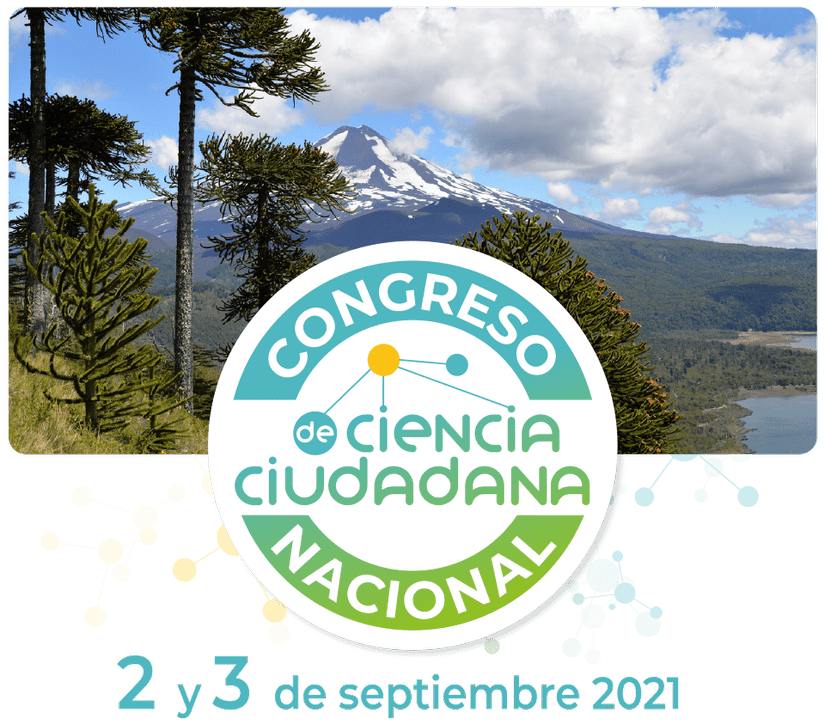
Anna Cigarini and Amanda Figueras present CoAct in the Chile Citizen Science conference
A representative of the Co-Researchers and a representative of UB jointly presented for the first time the chatbot in a scientific…
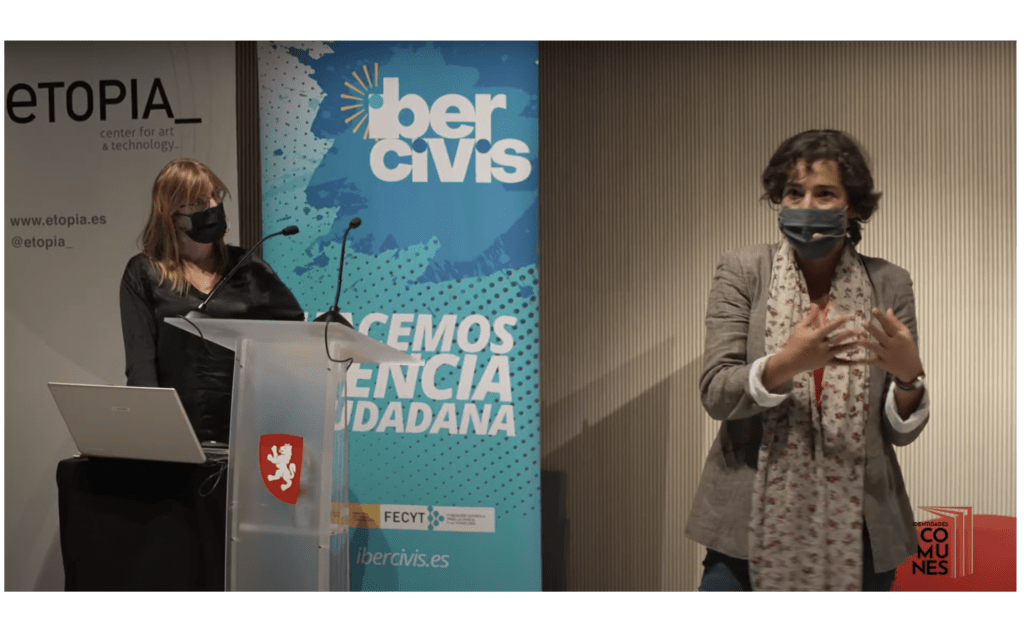
CoAct project and CoAct for Mental health at the first Meeting of Citizen Science, Social Sciences and Humanities
In Zaragoza (Spain), the first Meeting of Citizen Science, Social Sciences and Humanities was organized in order to foster cooperation and…
Knowledge Coalition meeting
Informative meeting with the aim of presenting the strategy and materials for the dissemination of the chatbot to the KC. During…
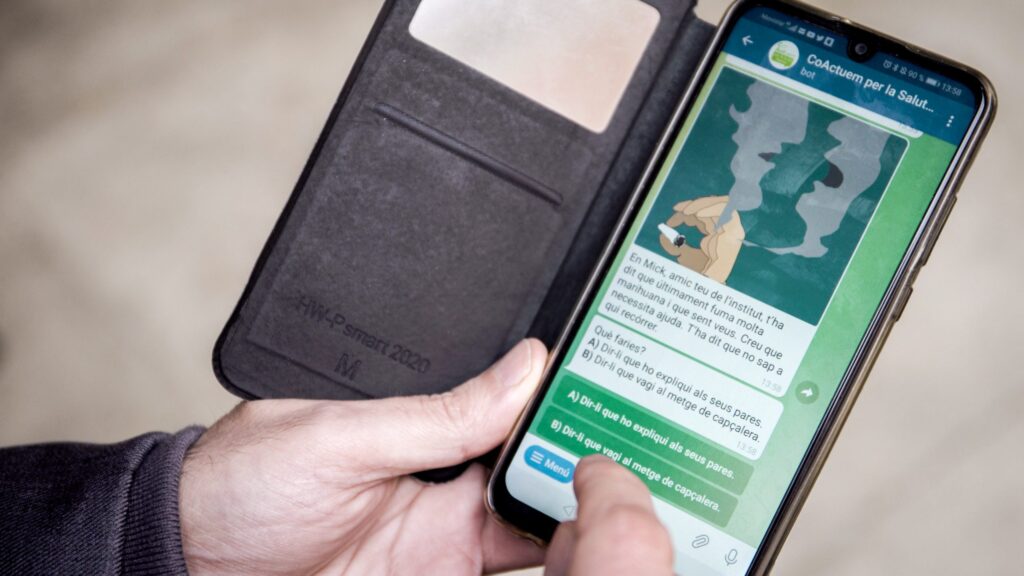
CoAct for Mental Health chatbot official launching!
The chatbot was officially launched so that everyone aged +18 could participate. Specific digital and printed material were prepared in order…
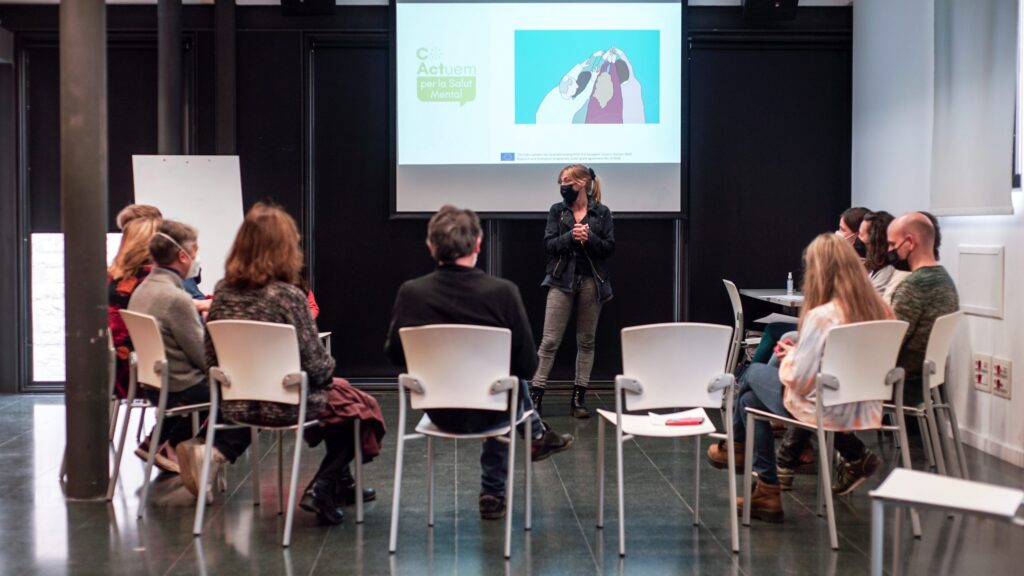
First face-to-face meeting with Co-Researchers
It was finally possible to organize a face-to-face meeting with Co-Researchers. This was a wonderful opportunity to meet in person after…
Already 300 participants in the chatbot CoAct for Mental Health!
300 participants already entered the chatbot, signed the informed informed consent and are participating actively to the research.
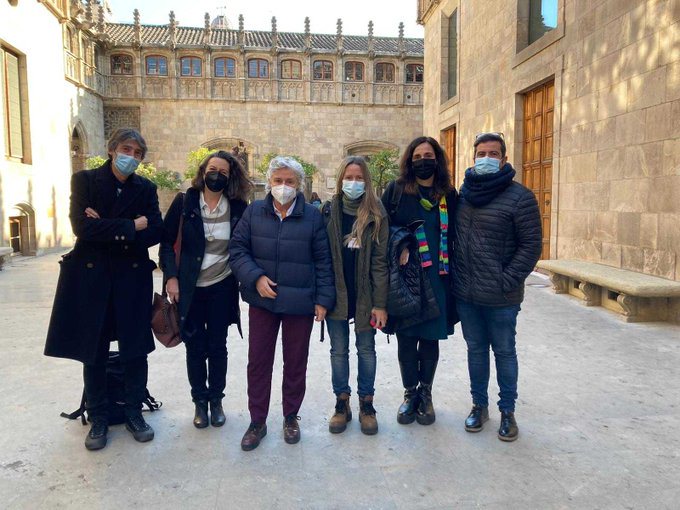
CoAct for Mental Health team meeting with the Commissioner of the Catalan National Mental Health Pact
The NMHP is the interdepartmental and intersectoral instrument of the Generalitat de Catalunya (Catalonia Government), which, aligned with the recommendations of…

Ana María Vázquez presented the project in Local TV channel
The “TV l’Hospitalet” channel interviewed a CoAct for Mental Health co-researcher, to present the chatbot to the audience. https://bit.ly/3B2MsLb
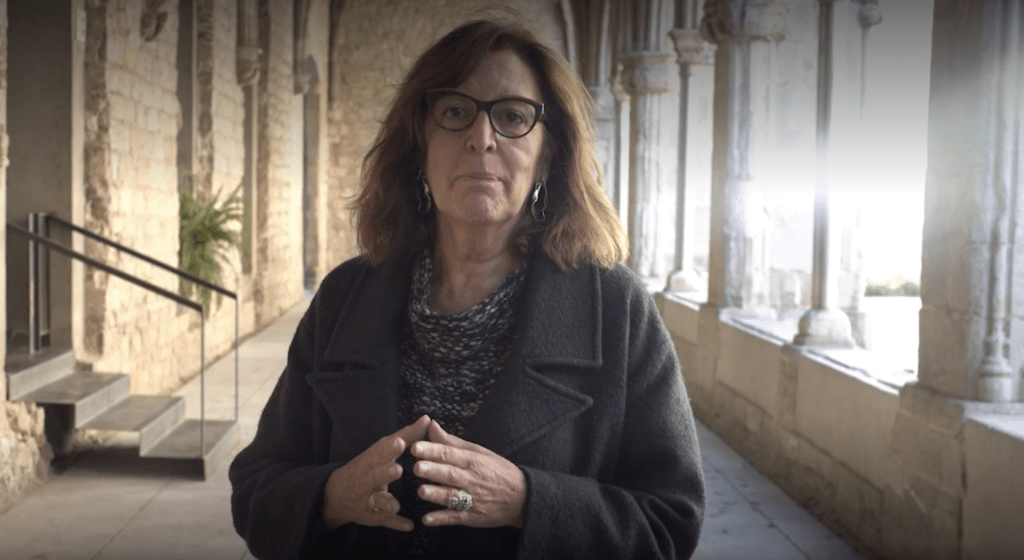
Launching of the testimonials video
7 CoAct for Mental Health Co-researchers were interviewed. Their testimonies were combined in a short video explaining the project and why…
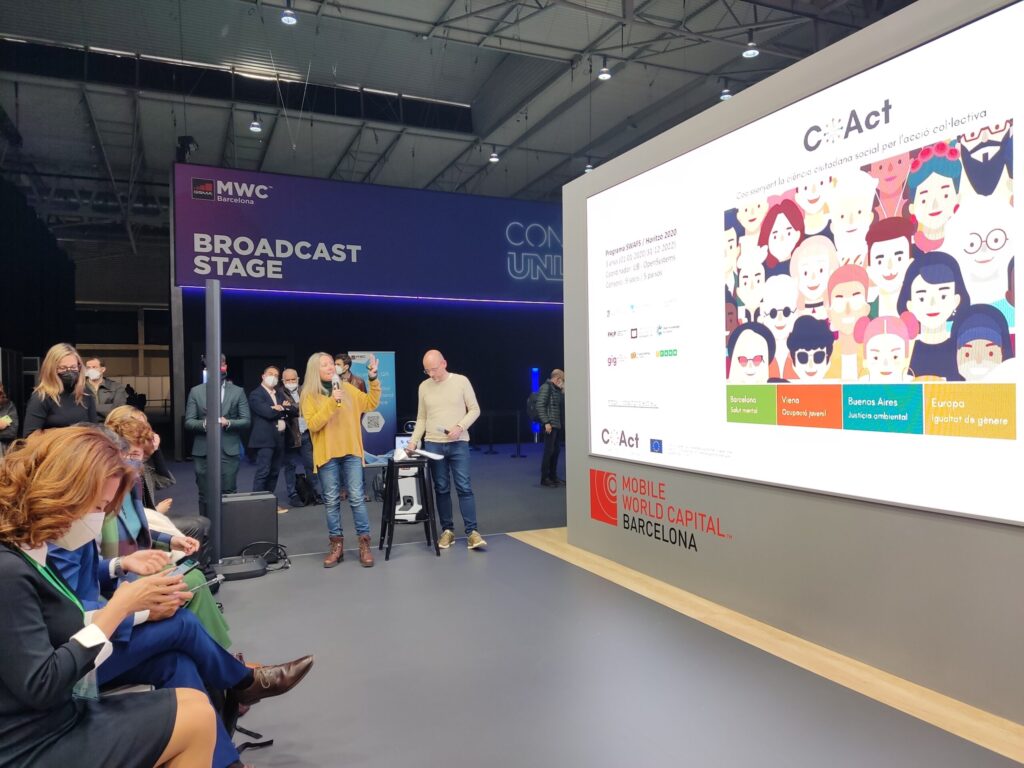
Vicenç Mateo and Bàrbara Mitats at the Mobile World Congress
The project was presented at the conference “m4social” in the frame of the Mobile World Congress in Barcelona. https://m4social.org/coactuem-per-la-salut-mental-el-primer-xatbot-de-ciencia-ciutadana/

Chatbot promotion and press campaign
From 24-11 to date: While the chatbot was extensively in the social media by a number of actors (UB, FSMC, Co-Researchers,…
500 citizen scientists are participating to the research through the chatbot!
The number of participants increased up to 500 people.
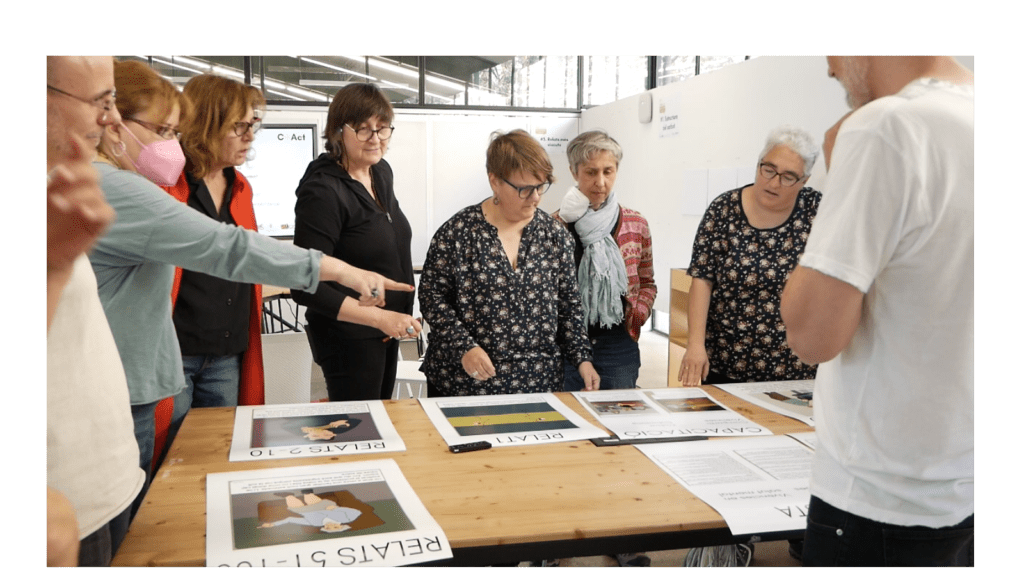
First face-to-face collective data interpretation session with the Co-researchers
At the Canòdrom (Barcelona) the Co-researchers and the CoAct team reflected together on the data collected through the chatbot during a…
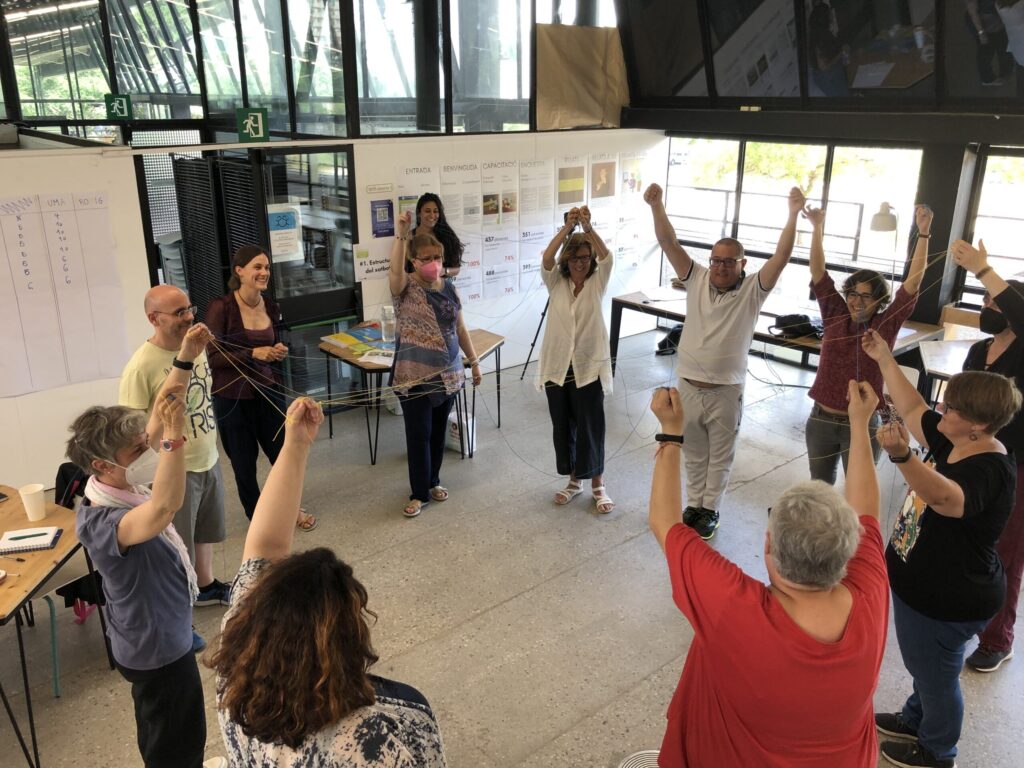
Second face-to-face session on collective data interpretation with the Co-Researchers
The Co-Researchers and the CoAct team reflected on the meaning of the answers collected by the chatbot and especially on the…
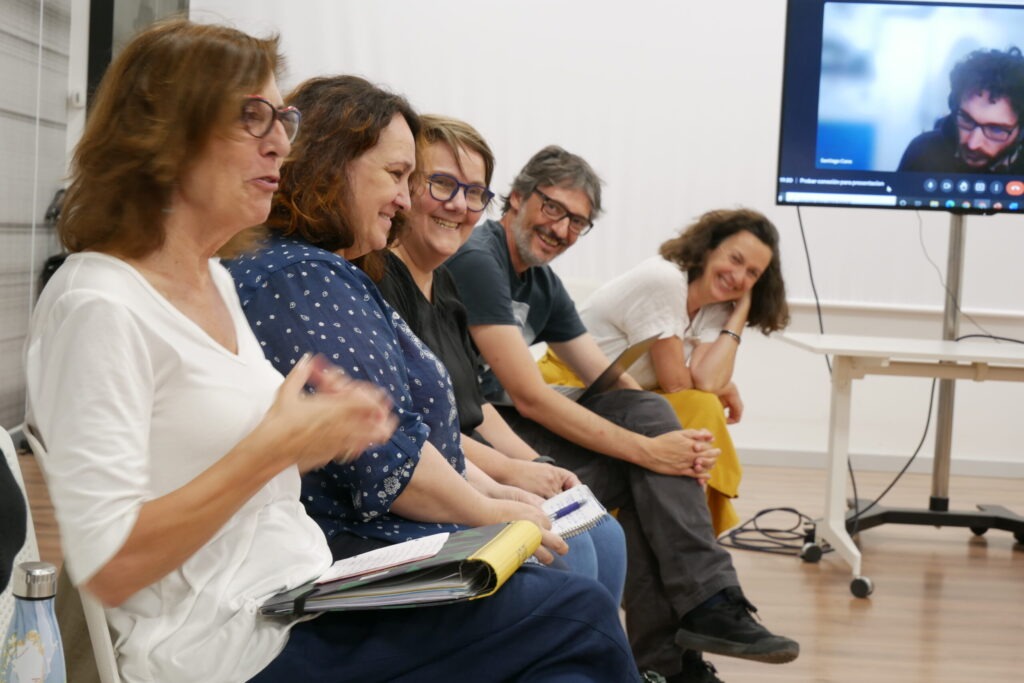
CoAct for Mental Health public conference at the Canodrom
Three Co-Researchers (Assumpta, Quiona and Inma) participated in this public conference, where they explained the project’s relevance to them. Visit to…
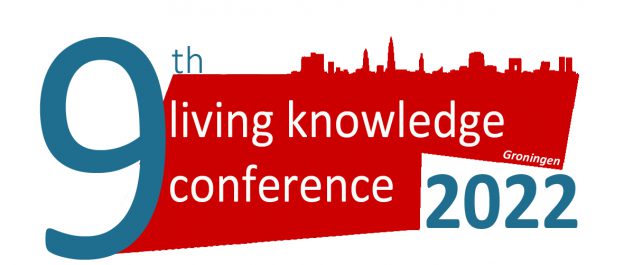
Amanda Figueras conducted the workshop “CoAct for Mental Health: sharing first-hand experiences of cocreated Citizen Social Science Research” at the Living Knowledge Conference
This demonstrative session aimed to simulate the co-design process of the CoAct for Mental Health project and to make the attendees…
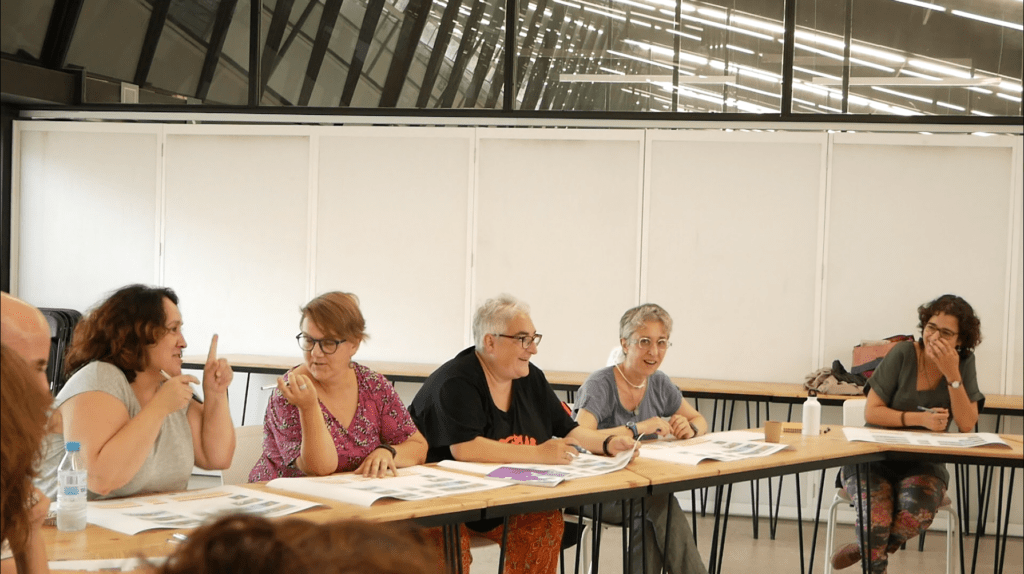
Third face-to-face session on collective data interpretation with the Co-Researchers
During this session, the last results were reflected on, and based on these results, a list of concrete actions was collectively…
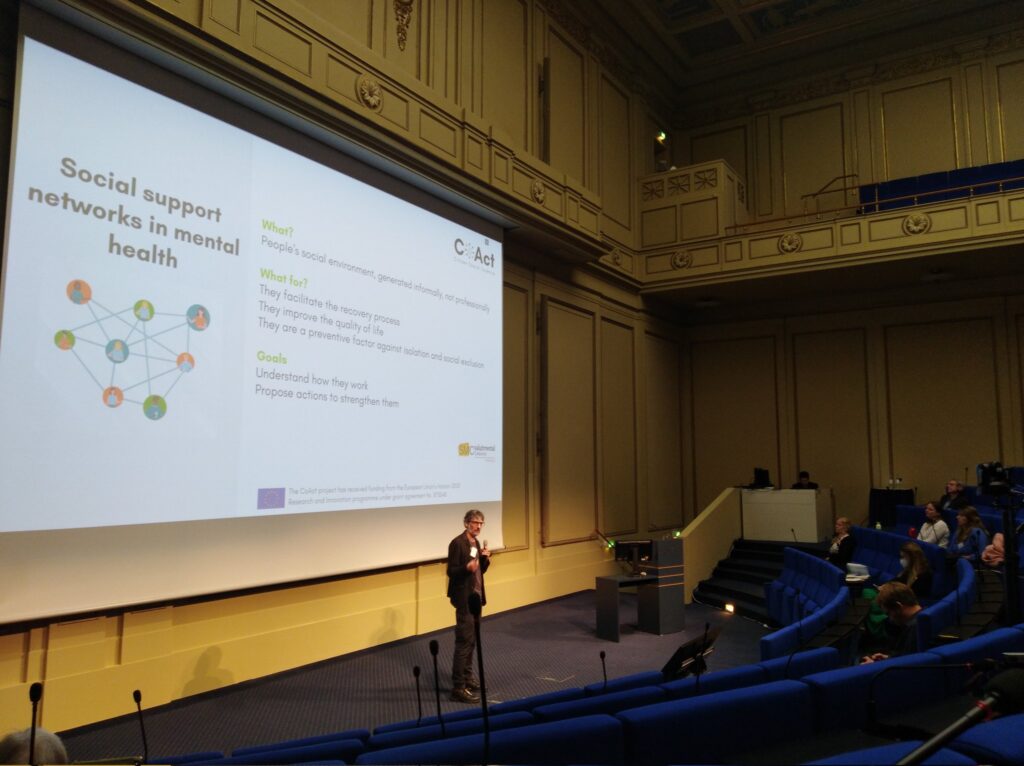
Two CoAct for Mental health presentations at the European Citizen Science Conference in Berlin.
The CoAct for Mental Mental collective data interpretation process was presented in an interactive workshop. The project was also presented as…
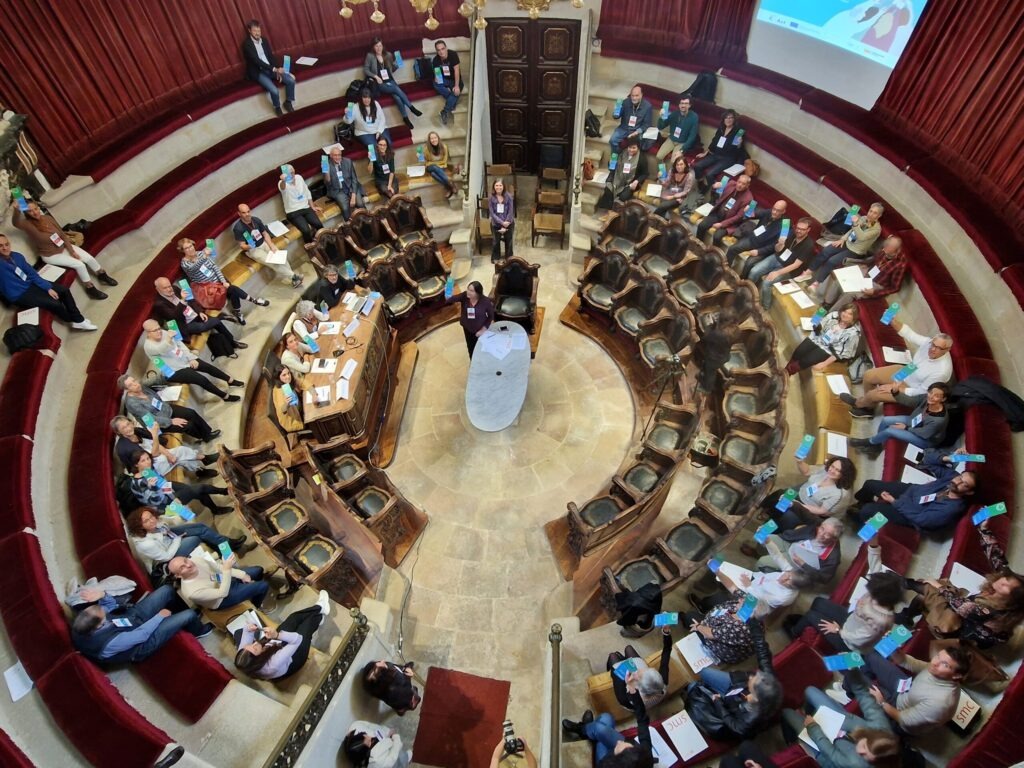
Final Mental Health Assembly
Celebration of an assembly with Knowledge Coalition members and Co-Researchers and open to anyone who has participated in the chatbot or…

